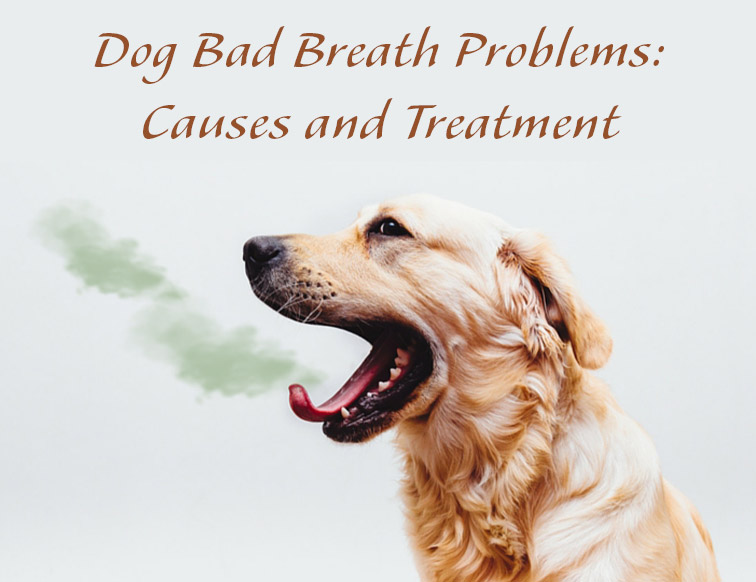Dog Bad Breath Problems: Causes and Treatment

When your dog enters the house to snuggle, do you find yourself pulling away or apologizing to visitors for the smell? Bad breath is extremely typical in our canine companions, especially as they age, and it may indicate more significant health problems for your dog.
Here is our in-depth analysis of the potential causes of your dog’s bad breath and tips for how to cure or perhaps avoid it.
What Causes Dog Breath Problems?
Due to the fact that our dogs frequently have a little bad breath, the term “dog breath” is frequently used to describe something mildly disgusting. Although it’s completely natural for your dog to have some odor on their breath from eating, playing with toys, and just generally going about their lives. Sometimes, this smell might intensify into a stink that repels all but the bravest puppy parents.
While you might be inclined to ignore the stink, your dog’s bad breath is typically a sign of a health issue that is the cause of the odor.The most frequent reasons for foul breath in dogs are kidney, liver, and dental health problems, while there are other potential causes as well.
Kidney Disease
If your dog has bad breath that smells like fecal matter and urination, it might be a sign that they’ve just eaten excrement or that they have kidney issues. If the kidneys’ capacity to filter and digest waste items is impaired, the accumulation of toxins and waste products in your dog’s body may be harming their health as well as contributing to the disagreeable odor coming from their mouth.
Liver Disease
If your dog has recently started to have extremely bad breath and their new scent is followed by worrying symptoms like vomiting and diarrhea, they may have a liver condition at the root of their symptoms.
Oral Health Problems
The most common cause of foul breath in dogs is oral health issues, which include disorders including tooth decay, gum disease, and oral infections. Whatever the specific cause, if you don’t regularly wipe your dog’s mouth out, bacteria and food particles can eventually build up there, causing plaque and an unpleasant odor.
If your dog has slightly bad breath, new oral health problems are probably to blame. The odor will worsen, and your pet’s well-being and oral health will continue to decline if they are left untreated.
How Can Dogs Get Rid of Bad Breath?
The reason for your dog’s bad breath will have a considerable impact on the type of treatment they require. Since bad breath is a symptom rather than a health problem, it should go away if the underlying problem is effectively handled.
However, you shouldn’t automatically assume that a change in your dog’s breath scent has a cause or that it is typical whenever you do. Due to the fact that a lot of reasons for bad breath might be quite dangerous health conditions, take your dog to the vet as soon as you can for an inspection and diagnosis.
Depending on what part of your pet’s body the ailment affects and how severe it is, your veterinarian may recommend meds, specialized foods, treatments, or even surgery to help treat your pet’s condition.
How Can I Treat My Dog’s Smelly Breath?
While kidney or liver issues cannot be treated at home, you can help your dog’s breath by ensuring that they receive the daily oral hygiene treatment they require in addition to yearly professional dental cleanings.
Every day you should clean your dog’s teeth, starting when they are young to assist them to become used to the sensation. There is also a range of dental chews and dog foods available that are made to support good oral health, either in addition to this or if you are unable to learn your puppy to tolerate brushing. Find out from your vet what dental care products they advise using to prevent bad breath in your dog.
There are a few simple steps you can take to assist your dog to avoid these causes of foul breath, as well as internal organ failure and sickness that affects their liver or kidneys.
Some human drugs, popular houseplants, and foods that are acceptable for humans are quite harmful to our pets. By being aware of the things you have in your home that could cause organ failure or illness, you can keep as many things out of your dog’s reach as you can.
